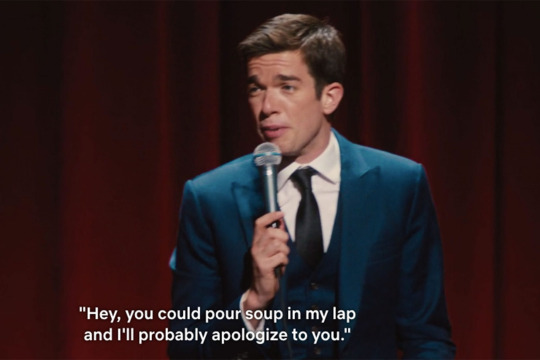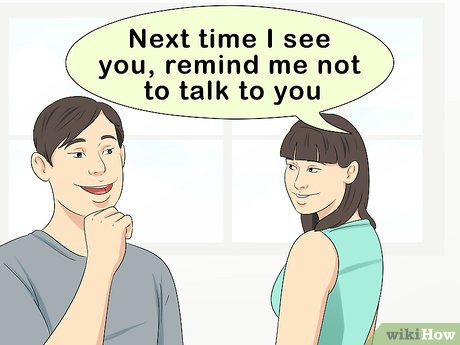prompts - writing - i'll try to help with all that i can
Don't wanna be here? Send us removal request.
Text
prompt 1786
Words associated with flying:
soar
drift
float
wing
air
bird’s eye
flutter
lift
current
glide
rise
take off
hover
levitate
luff
dive
sky
flap
float
127 notes
·
View notes
Note
For cooking scenes, how would one go about it? I don't want to do every single detail, but I want to use it in a way to show a relax environment, probably good for romance or just plain old bonding
So the thing to remember about scenes like this is that they're usually not about the action (cooking), but something else (the emotions behind the cooking). So when you have a scene like this, you're going to be thinking about how to convey those emotions via the cooking. For example:
A husband is making a cake for his wife. Is he
Making it because he wants to surprise her for her birthday? He's thinking about her while making it, so he might be stirring the batter the way he's seen her do it (emotional connection) - or the way he remembers his grandmother doing it, thinking about how he wishes the two could have met (surprise backstory!)
Making it in the attempts to make up for a fight? He's still anxious and penned up, and accidentally drops the eggshells in the batter. He's still angry, and doesn't measure the ingredients right - and the cake turns out a disaster! How's he going to apologize now?
You should also consider non-Western styles of writing - the cooking scene is there because food is an essential part of life. Think of food preparation scenes in Ghibli movies, how the focus is not just on how the food is being made, but the food itself. Sometimes scene and setting trump forward action, and if food is an essential part of your character's world and lives, it deserves to have its own focus.
216 notes
·
View notes
Note
any easily-overlooked character building questions i probably need to ask myself about my character(s) ? thank you !!
Character building questions:
What are your character's core traits? If you had to sum them up in two, what would they be?
What makes your character special and distinct from others in your cast?
What makes you character unique for readers? What will make them memorable compared to similar stories in your genre?
What makes the character relatable? What traits, fears, backstory, wants, dreams or problems will be easy to idenitify with?
Do you know your character's arc in the story? Describe it in a few sentences.
Does your character have a wound from their past they are dealing with? Will they get a wound during the story? In other words, what will be their greatest challenge and where does it come from?
One of my favourite things to do when building interesting characters: contradictions. What about them is contradicting that will make them stand out? This could be a trait combination (like arrogant but hardworking) or fears vs ambitions (want to find friends but hate meeting new people) a conflict of dreams (they want to travel around the world but also help their sibling with their new child) or a conflict of needs or obligations (they want to be with their family but can't stand their overbearing mother) etc.
Some core questions about the whys and hows they do things. Are they idealists or loyalists? Do they like to improvise or plan? Do they follow logic or their feelings? Are they more practical or abstract?
Another cool exercise is skimming through character personality tests. If you can pinpoint who your character is in the profiles you probably know them well. Try MBTI, Enneagram, @sortinghatchats, 12 archetypes etc.
Any habits, quirks, preferences about them? This can be a nice touch of realism (do they bite their nails, like close spaces, sing when alone, give people weird nicknames etc).
Hope that helps! Don't hesitate to ask any writing questions you might have^^
608 notes
·
View notes
Note
Hi, sorry if I missed this in your FAQ, but do you have any advice on how to incorporate humor into a story? Also, how do you know when something is funny?
How to Write Humor

Humor is very hard to pull off for writers. Many aspects of humor depend on a person’s expression and delivery, on the way they say the joke and how they hold themselves while they speak. It relies on the inflection of the voice and certain hand gestures and expressions.
With writing, all you have are words on a page and the reader’s imagination, and it can be especially hard to write humor if you don’t find yourself funny and aren’t quite a comedian.
Here are some tips on how to write funny jokes and humor into a story and make sure that it stays funny.
1. Don’t Use Memes or Modern “Slang” as the Punchline

The thing about memes and slang is that they come and go. There’s a new viral meme every week, and trends are born and die faster than you can blink.
Once these things go out of date--whether they be turns of phrase or certain words-- society often brushes them off as “cringey” and will often react negatively to seeing it in a story.
I can’t tell you how many times I’ve read an older fic and they’d refer to dogs as “doggos” or say something like “it do be like that sometimes” and even though it might’ve been funny during the height of these trends, now they make me make a face and squirm a little in my seat.
The best way to keep hip is to not keep hip, so to speak. Come up with your own original content and your own original jokes and your writing will remain nice and ageless, withstanding the test of time and the test of cringe culture.
2. Randomness and Spontaneity Jokes are Best Left for Visual and Auditory Media

This kind of humor revolves around people blurting out random things and is kind of reminiscent of slapstick comedy.
Think of this TikTok audio that has been going around recently which involves audio from the Cartoon Network TV show Johnny Test:
“Why did you resist a police officer?”
“Why are you police officers?”
“I blew up Malaysia.”
See how it doesn’t make much sense in words? The only reason why this audio was funny was because of the way the actors spoke it and the way the punchline was delivered, which readers cannot imagine in their minds if they’ve never heard it before.
This kind of humor comes off as childish and low brow, and will make more mature audiences uncomfortable rather than entertained. Having characters blurt out things that make no sense in the middle of a dialogue just interrupts the story and brings it to a grinding halt, and I see this mistake primarily made with fic writers struggling to make their stories more humorous.
It’s like the dialogue equivalent of dropping an anvil on your character; although it’s funny when it happens to Wile E. Coyote, it’s not funny when it comes to written word.
3. Dry Humor is the Easiest Humor!

Dry humor, also known as deadpan, is the deliberate display of emotional neutrality that’s meant to be blunt, ironic, laconic or apparently unintentional.
It’s not a “joke” or a “pun” that’s told specifically to make people laugh (i.e. “Where do cows go on dates?” etc.), it’s just something that people say the just so happens to be funny.
In my personal opinion, dry humor is the easiest way to bring humor into your story. It doesn’t require any characters to be “jokesters” and it doesn’t require a lighthearted situation. It’s just a remark--perhaps about a certain situation--that readers can interpret as humorous.
Some Examples of dry humor:
“You smell of death and destiny, of heroics and heartbreak!”
“It’s onion.”
--Jaksier and Geralt, The Witcher
*****
(Drilling sword stances...rather poorly)
“What the hell are you doing?”
“Practicing.”
“What, ways to die?”
--The Hound and Arya, Game of Thrones
*****
“My first girlfriend turned into the moon.”
“That’s rough, buddy.”
--Sokka and Zuko, Avatar: The Last Airbender
*****
“And what could be better than serving up smiles?”
“Being dead.”
--Spongebob and Squidward, Spongebob
4. Situations Can Be Funny, too, Not Just Dialogue!

Sometimes characters can get themselves into trouble in ways that may not be funny to them but can definitely be funny to a reader.
Tripping, hitting their head, stubbing their toe--especially during times of high tension--can be an excellent way to incorporate humor into your story. “This can’t get any worse” situations that get worse, a character being put completely out of their element, and other such things are all great examples of this
Just make sure to do it within reason, though, as to make sure you’re not falling into the random/spontaneous joke category!
5. Write What You Think Is Funny, But Make Sure Others Check It!

I know some people may be insecure in their ability to write jokes, but the easiest way to make sure your story is funny is to write what YOU think is funny. There’s a pretty good chance that you’re just your own worst critic!
I know for me personally, I found that when my friends were reading the earlier drafts of my books, they would find things that they thought were funny without me even intending for them to be a joke! Everyone’s sense of humor is different, and everyone will interpret your writing, in various ways.
So write your story how you want to write it, and have someone read it over to make sure the jokes are funny! They don’t have to be laughing out loud--it’s possible for jokes to be hilarious without warranting an outward reaction--but as long as it makes them smirk at their book or perhaps let out a puff of air through their nose, it’s all worth it!
6. Read, Watch, and Listen!

The best way to learn how to write humor is to read, watch, and listen to humor. Look at comedians, at jokes in your favorite novels and TV shows:
What do they all have in common? What is it about them that really makes you laugh? How can you embody that in your story?
A little research never hurt anyone, and hey, maybe you might be able to improve your own sense of humor while you’re at it!
Hope this helped, and good luck!
1K notes
·
View notes
Text
Resources For Worldbuilding

Culture & Society
Creating Fictional Holidays
Music For Your Fantasy World
Creating Religions & Belief Systems
How to Design Your Diabolical Cult
Historically Accurate Sexism in Fantasy: Let’s Unpack That
Debate with the Squirrels: Sexism in Fantasy
Feudalism
Using Politics In Fantasy Fiction
Mythic Justice – Crime and Punishment in Your Fantasy World
Government Worldbuilding
Realistic Political Strife
A Politics Of Worldbuilding
Language
Creating a Language
The Language Construction Kit
The International Phonetic Alphabet – Audio Illustrations
Fantasy Name Generator
Geographic Names
Medieval Names Archive
Squid Name Generator
Model Languages
Xenolinguistics
History
Prehistory
Mythos
History
Today
Myths, Creatures, and Folklore
Encyclopedia Mythica
The Ancient History Encyclopedia
Using History as Inspiration for Fantasy
Victorian Era Family Day Life in England
Peasant Life in the Middle Ages
Everyday Life in the Middle Ages
English Monarchs
Feudal Japan
The Story and Structure of the Iroquois Confederacy
Science + Geography
Dimensions
Solar Bodies
Climatology
Planetary Geography
Water Geography
Cartography, Maps, Star Charts, and Writing
Fundamentals of Physical Geography
Dating of Middle-earth events, using Precession of the Equinoxes and Tidal Friction
Orbital Operations in Science Fiction
Planet Designer
Artificial gravity calculator
Natural gravity calculator
Selden’s Catalogs of Objects for Celestia
Medieval Technology
Defining the Source, Effects, and Cost of Magic
How to Create a Rational Magic System
Miscellaneous
/r/worldbuilding
Fantasy World Generator
SciFi World Generator
Focused Ambiguity: Using Metaphor in Fantasy Writing
Space Engine
Terragen
The Five foundations of Worldbuilding
Setting the Fantastic in the Everyday World
Support Wordsnstuff!
If you enjoy my blog and wish for it to continue being updated frequently and for me to continue putting my energy toward answering your questions, please consider Buying Me A Coffee.
Request Resources, Tips, Playlists, or Prompt Lists
Instagram // Twitter //Facebook //#wordsnstuff
FAQ //monthly writing challenges // Masterlist
16K notes
·
View notes
Text
Tips for Writing a Difficult Scene
Every writer inevitably gets to that scene that just doesn't want to work. It doesn't flow, no matter how hard you try. Well, here are some things to try to get out of that rut:
1. Change the weather
I know this doesn't sound like it'll make much of a difference, but trust me when I say it does.
Every single time I've tried this, it worked and the scene flowed magically.
2. Change the POV
If your book has multiple POV characters, it might be a good idea to switch the scene to another character's perspective.
9/10 times, this will make the scene flow better.
3. Start the scene earlier/later
Oftentimes, a scene just doesn't work because you're not starting in the right place.
Perhaps you're starting too late and giving too little context. Perhaps some description or character introspection is needed before you dive in.
Alternatively, you may be taking too long to get to the actual point of the scene. Would it help to dive straight into the action without much ado?
4. Write only the dialogue
If your scene involves dialogue, it can help immensely to write only the spoken words the first time round.
It's even better if you highlight different characters' speech in different colors.
Then, later on, you can go back and fill in the dialogue tags, description etc.
5. Fuck it and use a placeholder
If nothing works, it's time to move on.
Rather than perpetually getting stuck on that one scene, use a placeholder. Something like: [they escape somehow] or [big emotional talk].
And then continue with the draft.
This'll help you keep momentum and, maybe, make the scene easier to write later on once you have a better grasp on the plot and characters.
Trust me, I do this all the time.
It can take some practice to get past your Type A brain screaming at you, but it's worth it.
So, those are some things to try when a scene is being difficult. I hope that these tips help :)
Reblog if you found this post useful. Comment with your own tips. Follow me for similar content.
53K notes
·
View notes
Text
So... I found this and now it keeps coming to mind. You hear about "life-changing writing advice" all the time and usually its really not—but honestly this is it man.
I'm going to try it.

102K notes
·
View notes
Text
How to write better descriptions
1. Avoid weak words
Compare these:
He ate the sandwich
She walked towards the lake.
to these:
He devoured the sandwich
She strolled towards the lake.
Which sentences tells you more? The latter ones. Why? Because devoured and strolled are stronger words than ate and walked. They’re more specific, so they give you more information. To get across the same information with ate and walked, you’d have to add more words: ‘she walked slowly,’ ‘he ate quickly.’
Obviously this isn’t saying you can only ever use strong words–that would likely quickly devolve into purple prose–but If your descriptions only ever include general terms: ‘it smelled good’ ‘he walked over to greet her’ etc. you’re making it harder for your reader to get an accurate picture of whatever is happening in your scene.
So how do you spot a weak word? The biggest problem with (and easiest way to spot) a weak word is that it needs support from other words to really get its meaning across. If you find yourself adding adverbs and adjectives to a term, question whether or not there’s a more concise way to get your point across instead.
2. Be Specific Where Details Are Important
This isn’t to say you should describe everything in every scene in perfect detail, but being specific matters.
Which is more engaging?
He devoured the sandwich
The book smelled magical.
or
He devoured the sandwich, stopping only to lick up the melted cheese that seeped through his fingers and ran down his palm.
The book smelled like a sunlit afternoon.
Again, the latter ones. They take you into the scene. They evoke the senses. It’s the difference between telling and showing. Devoured is a strong verb, but it doesn’t give us a clear image of what is happening. Showing the character licking away the cheese gives the reader a sense of the desperation and hunger of the action. Evoking a sunlit afternoon is evoking your reader’s memories of their own sunny afternoons.These examples are statements with evidence. They provide details.
You want to invite your reader into the scene, not give them a summary of the events.
Additionally, specifics make the world feel real. They convince readers that the world actually exists. They keep the story in your readers’ minds once they’ve finished reading.
This being said, don’t pull a GRRM and describe every meal your characters eat. Some things just aren’t that important. There are MANY occasions when it’s okay to tell instead of show.
3. Remember the point of view.
Who is giving the description?
If you’re writing in 1st person or 3rd person limited, remember how your character feels about what you’re describing. If you’re describing a strawberry field, a person who was raised on a strawberry farm is going to see it differently than someone who is deathly allergic to strawberries, who is going to see it differently from a Beatles fanatic.
Maybe the Beatles fanatic is deathly allergic to strawberries and this field brings up a whole bucketful of conflicting emotions.
Which is all to say:
Good descriptions reveal character as well as scene.
If this description is coming from a character’s point of view: what is that point of view? What is this scene making your character feel? Don’t let your narrator slip away from the page.
This connects to my last point.
4. Remember why you’re including it.
Novel writing is persuasive writing. It’s an exercise in persuading your reader that your story is true, that your characters are real people. It’s an exercise in persuading your readers to feel what you want them to feel.
(There’s a well-known quote about this somewhere, but I can’t remember it exactly.)
Every description must add to the story. It should be doing something: working for some larger goal, advancing the plot, revealing character.
Maybe you’re describing a house because you want your reader to see why your character doesn’t want to move.
Maybe you’re describing this lovely-smelling book because you want the reader to know that it’s important to the character. That her favorite memories are of reading it in the attic of her grandmother’s house.
When you’re writing out a description, identify its purpose and make sure it fulfils it.
It’s okay if at first you don’t know how the house makes the character feel, or if she’s running or strolling towards the lake, or why the book is so important. Sometimes you just know it’s there. That something happened. Usually things become clearer as you write further and get to know the story and characters yourself.
Once you do know what you’re trying to say with your story, make sure you say it with every chapter, every description, and every word.
20K notes
·
View notes
Text
A Tale of Astraphobia
As much as I love the sky, and the clouds that surrounds it. There’s also the darkness that creeps when the sky is filled with dread and the top of the world strikes bright and somewhere, in that place, where the light hits the ground. We don’t know what is happening then.
Could it have struken a poor soul? Would someone have lost a life from the hit? What would be on fire after it happens?
View On WordPress
0 notes
Text
Happy Birthday To Me
Happy Birthday To Me
A milestone age, wow. Honestly, when I was barely even a teenager, I never would’ve thought this day would come.
Its weird, how time can stop and focus on the harder aspects rather than speed through the process while formulating better an educated and possibly well rounded decision, or might I even say “outcome.”
I really just want this to pass by quickly. Kind of how when you go to get a…
View On WordPress
0 notes
Text
Above the Ceiling Nightmares
Above the Ceiling Nightmares
November 4th 2019 Entry
Above in the ceiling of the silent class, the whirring of an ac flaunts its power in the voluminous pattern it displays. Students surrounding the floor of the room, the silent chatter antagonizes the protective bubble that floats around a students’ mindless body.
As focused as he got, he was able to fixate on where the silent screams were emerging from. Students…
View On WordPress
0 notes
Text
During an assignment I was given, we were all given this sheet to learn more about our dreams and well… I decided to put these down and online, if you’d like to print this off I’ll include the photos at the bottom.
Analyzing your dreams
People
Typical woman (beautiful, noble, ageless): represents spirituality, guidance rather than nurturing
Wise old man: guidance and rational wisdom gleaned from experience; the dreamer is seeking wisdom from within
Wise old woman: guidance and feeling wisdom gleaned from experience
Parents: need to feel protected and consoled
Child: creative forces
Trickster: human consciousness, wise and unwise simultaneously
Clown: represents the fun-loving aspect of yourself, or a need or desire to disguise sadness
Teacher: dreamer seeks to understand themselves to improve life
Leader or hero: father figure, protection, rescue
Animals
Horse: primitive animal needs
Snake: male sex organ; healing, rebirth; energy arising from unconsciousness
Spider: change
Monster: hostility, fear anger, and repressed emotions
Dog: masculinity, instincts
Cat: femininity; mystery; independence
Bird: freedom
Nature
Sun: masculinity, life-giving
Moon: feminine, mysterious
Earth: mother figure, security, nurturing
Sea: unconsciousness, eternity
Fire: energy, destruction, sexuality
Rain: crying, suffering before release, cleansing
Strong tree: father figure
Island: Isolation
Mountains: ambition, spiritual climb
Actions
Flying: desire to escape from responsibilities; expansion
Crossing a bridge or climbing a mountain: entering a new stage of life
Eating: devouring, transformation
Dancing: symbolic unity; sexual intercourse; relationship
Swimming: dealing with life
Falling: feeling out of control, overwhelmed (stress within one’s life)
Being chased: the need to confront something in life
Dying: end of an attachment or a stage in life
Taking a test: avoiding some kind of challenge or about to face a challenge
Kissing: desire to be nurtured and cared for
Losing something: personal values are changing, not clear where you stand on certain issues
Nudity: afraid of being exposed or vulnerable
Objects/ Things
House: structure of self (collapsing walls or wiring is exposed, psychological health may be in danger)
Door: transition, choice
Window: eyesight, perception
Wall or fence: restrictions, introversion
Fruit: sex organs, reproduction
Key: power, masculinity
Lock: potential, femininity
Mirror: Soul, looking inward
Stairs: Gaining (up) or losing (down) consciousness
Shapes
Circle or mandala: wholeness, harmony
Triangle: magic, spirituality
Square: Solidity, establishment
Colors
Red: anger, intensity
Pink: innocence, love
Yellow: energy, anger
Orange: pride and ambitions; cruelty and loyalty
Green: life, fertility
Blue: rational
Purple: spirituality, arrogance
Brown: earth, primitive instincts
Black: shadow, power
Grey: neutral
White: purity, spirituality
Numbers
Odd numbers: masculine
Even numbers: feminine
Zero: the void from which everything arises and returns
1: beginnings, individuality, masculinity, indivisibility
2: duality, ying and yang, light and dark, femininity, receptivity
3: magical, spiritual, the union of two opposites to create a third
4: stability, wholeness, materialization, sensation
5: human in star formation or humans physical form, physical life
6: equilibrium, balance, harmony, health and time
7: cycles in life, inner rhythms, and energies; sacred number
8: generation, degradation, and regeneration; death and rebirth, infinity
9: completion of the growth process (as in 9 months of pregnancy)
10: a new beginning, reincarnation, karma
11: unstable and imperfect number, sin and transgression
12: time symbol, as expressed in the twelve months of the year
Yeah, that’s pretty much all I’ve got for this post-… it’s not sad, you’re sad.
Deciphering Dreams and Nightmares During an assignment I was given, we were all given this sheet to learn more about our dreams and well...
0 notes
Text
Sleeping Predicaments
2020 and less of my sleeping predicaments
April 30th 2020 Entry
Does something ever happen, like oh I don’t know your feelings just embark on a journey without you realizing that something has happened?
Well, as some of you know, I’ve been having sleeping struggles and problems since 2018 ish, perhaps even earlier. Now, I’m no mathmatologist, but things like this can easily erupt into a chaotic paragraph. This all started with an…
View On WordPress
0 notes
Text
How to Manage a Gang or Cult of Characters
Now don’t take this the wrong way, I didn’t mean for it exactly to say how to manage a gang nor how to manage a cult. No, this article is solely focusing on a mass amount of characters and how to write with them.
If you were here and managed to only want to focus on how to write a gang or a cult then sure I’ll add it, but it’ll be near the end of this article.
Handling a mass amount of…
View On WordPress
0 notes
Text
Top Rules Every Writer Should Both Know and Follow
I know for me I like to have my options wide open when I write. Whether I’m in front of a PC, have a notebook or stacks of paper for my pen to follow. I usually always have my dictionary next to me and depending on the day or where my writers block has followed me, I’ll also have my lil’ inspo book with me.
First Drafts
Writing that first draft has a high outcome of coming out perfect. There is…
View On WordPress
0 notes
Text
25+ Stories to Find Your Idea
Recommendations
Guys there are honestly so many books and shorts that I’d love to help recommend, so here, categorized I got chu
Action & Adventure
Mighty Jack and Zita the Spacegirl by Ben Hatke , Ignite the Skies by Maura Milan, Wildfire by Rodman Philbrick , Code Name: Genesis by Sawyer Bennett, Charlie Thorne and the Last Equation by Stuart Gibbs , Chilling Effect by Valerie Valdes, Lalaniu…
View On WordPress
0 notes
Text
Working On Characterization
“If you get stuck, move forward to a scene that you’re looking forward to working, and that just tends to give you your joy back. And then often you’ll find that the space between them is actually a lot smaller than you thought it was.” – Jojo Moyes, WD
“Listen to those around you. By paying attention to how they speak, how they sound, and their vocabulary, patterns emerge that reveal a…
View On WordPress
0 notes